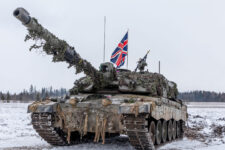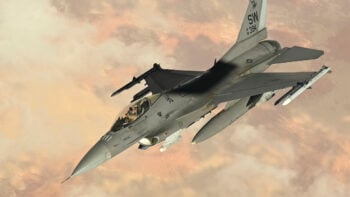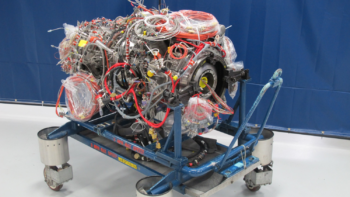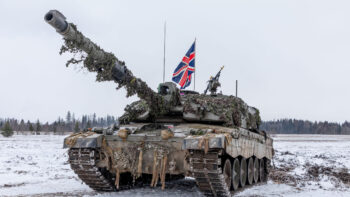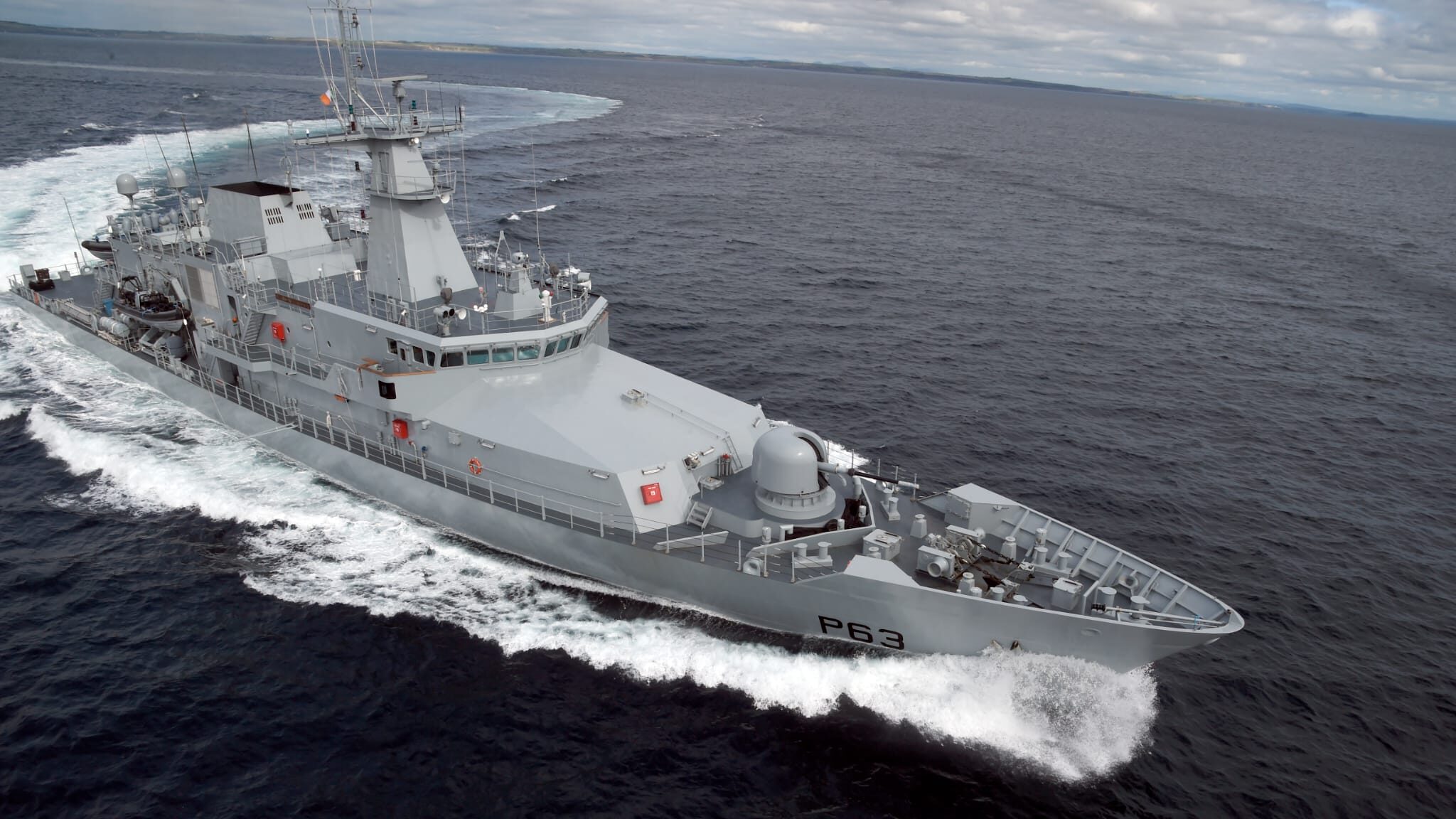
Ireland’s offshore patrol vessel LE William Butler Yeats boasts a range of 6000 nautical miles and is designed to perform maritime security, search and rescue and fishery protection missions (Irish Naval Service on Twitter)
BELFAST — Ireland’s deputy prime minister this week explicitly ruled out developing antisubmarine warfare capabilities, despite facing fierce criticism over maritime weaknesses, an inability to independently protect undersea cables or prevent Russian naval exercises in Irish exclusive economic zone (EEZ) waters.
“Ireland will never be in a position really to engage in [anti] submarine warfare, but I think you can develop strategies to protect vital economic assets, particularly in terms of undersea cables,” Michéal Martin — who also holds the titles of minister for foreign affairs and minister of defense — told the Atlantic Council during a Feb. 8 visit to the US think tank in Washington. He declined to further elaborate on what those antisubmarine warfare options could be.
As a militarily neutral nation, Ireland primarily carries out United Nations peacekeeping activities and has long underfunded its defense forces, but threats posed to European security by Russia have prompted questions about Dublin’s maritime readiness.
Martin’s predecessor Simon Coveney publicly admitted, on the eve of a controversial Russian naval exercise off the Irish coast in January 2022, that Ireland had no power to stop it, despite saying Russia was “not welcome.”
The September sabotage of the Nord Stream pipeline has also prompted fears of similar attacks on undersea transatlantic cables around Ireland’s EEZ in the North Atlantic. The cables are critical to data carrying, financial transactions and are highly vulnerable to attack, without the Irish Naval Service able to adequately defend them.
Understaffing of the Irish Naval Service caused by a retention crisis means that it struggles to operate six active ships, responsible for controlling 16 percent of the European Union’s territorial waters, according to Foreign Policy.
“Like many militaries across the world we are suffering recruitment and retention issues….but again we’re part of a broader European security and defense strategy in terms of protection,” Martin said at the Atlantic Council.
Ireland has, for years, been torn between what is needed to defend its territory and a limited budget that competes with domestic policies. In February 2022, a comprehensive review of the state of Irish military capabilities, undertaken by the Commission on the Defence Forces, concluded that by 2040 the Irish Naval Service should include a “balanced fleet of at least 12 ships, supported by appropriate technology, as part of a joint Defence Forces structure.”
As part of that review process, the Irish government was provided three packages for investment, known as Level of Ambition (LoA) sets. LoA 1 was modest, LoA 2 was a medium investment, and LoA 3 the most ambitious, which would have seen the Naval Service provided with “maritime capabilities for defending the State from a conventional military attack.” It also would have included a “combat orientated” offshore patrol vessel.
Instead, in July 2022 Dublin approved moving forward with LoA 2 which prioritizes “an increased presence at sea” by operating a naval fleet at “an optimum level through double crewing.” Alongside the transition to LoA 2, the Irish DoD pledged to increase military spending from €1.1 billion ($1.19 billion) to €1.5 ($1.62) billion by 2028, the largest increase since the foundation of the Irish Republic.
Dismissing LoA 3 also meant that a recommendation to acquire a first fighter jet squadron will not be taken forward, amid political opposition to the Irish Air Corp continuing to rely on the UK’s Royal Air Force (RAF) to carry out Quick Reaction Alert missions to escort Russian aircraft away from Irish air space.
Outside of plans to transform national defense ambitions, Martin said that he believes “Ireland can add something” to an interim tribunal planned to be set up in the Hague so Russian war crimes can be prosecuted and continues to support Ukraine’s application for European Union membership.
Northrop sees F-16 IVEWS, IBCS as ‘multibillion dollar’ international sales drivers
In addition, CEO Kathy Warden says the company sees a chance to sell up to five Triton UAVs to the NATO alliance.

